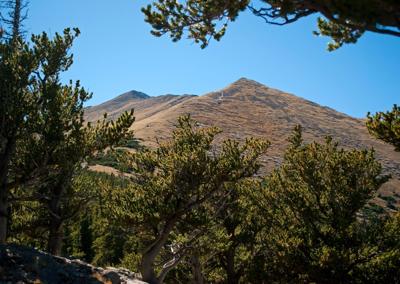On July 13, Custer County Search and Rescue got called to the Horn Peak Trail, near Westcliffe, to provide support for a hiker with altitude sickness. According to the rescue team, the group of hikers noticed the symptoms of the condition early on and made the right call by calling for help.
Once on the trail, the rescue team hiked in to the party. They did an assessment and helped the hiker walk out for further evaluation by Custer County EMS.
"Their decision to call right away greatly impacted the success of this mission," said Custer County Search and Rescue.
Horn Peak Trail is notably steep, reaching an elevation above 13,000 feet with more than 4,000 feet of vertical gain. It's close to 9 miles long, but almost all of that gain comes during the first half, making it extremely strenuous.
Anyone that's experienced altitude sickness knows how uncomfortable it can be – often compared to a really bad hangover. Unfortunately, once symptoms arise, the only real solution is to descend to a lower elevation as quickly as possible – which can often be tricky due to extreme nausea.
Preventing altitude sickness can be tricky, as some people are naturally more prone to experience the condition (though gene therapy might change that – more on that here). One big tip that relates to Colorado is to avoid immediately going up to a high elevation area if visiting from sea level, instead allowing time for acclimation. Avoiding caffeine, alcohol, and tobacco can also be helpful and drinking enough water is hugely important. Taking breaks can also be beneficial.
In terms of what symptoms of altitude sickness one should watch out for, headaches, nausea, loss of appetite, and shortness of breath can be signs that the condition is developing. If symptoms are noticed, seek lower elevation immediately. The condition can be deadly. Read more about the condition here.
There was no charge for the rescue, which Custer County Search and Rescue proudly noted with the hashtag #nochargeforrescue in a post referencing the mission. Colorado's search and rescue operations are typically free for the party being rescued, depending on the extent of resources used – for example, a helicopter or ambulance ride will likely cost you. One big reason why search and rescue is able to remain free in a state where the demand is so high is the massive volunteer network involved in the statewide program.
Those interested in contributing to help Colorado's search and rescue effort might consider purchasing a CORSAR card (they're surprisingly cheap) as a way to offer financial support.
STAY INFORMED: Sign-up for the daily OutThere Colorado newsletter here








(0) comments
Welcome to the discussion.
Log In
Keep it Clean. Please avoid obscene, vulgar, lewd, racist or sexually-oriented language.
PLEASE TURN OFF YOUR CAPS LOCK.
Don't Threaten. Threats of harming another person will not be tolerated.
Be Truthful. Don't knowingly lie about anyone or anything.
Be Nice. No racism, sexism or any sort of -ism that is degrading to another person.
Be Proactive. Use the 'Report' link on each comment to let us know of abusive posts.
Share with Us. We'd love to hear eyewitness accounts, the history behind an article.